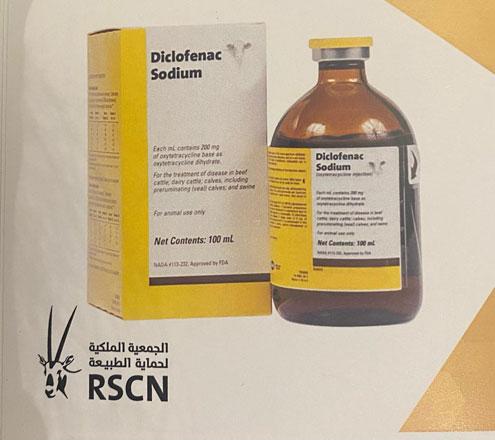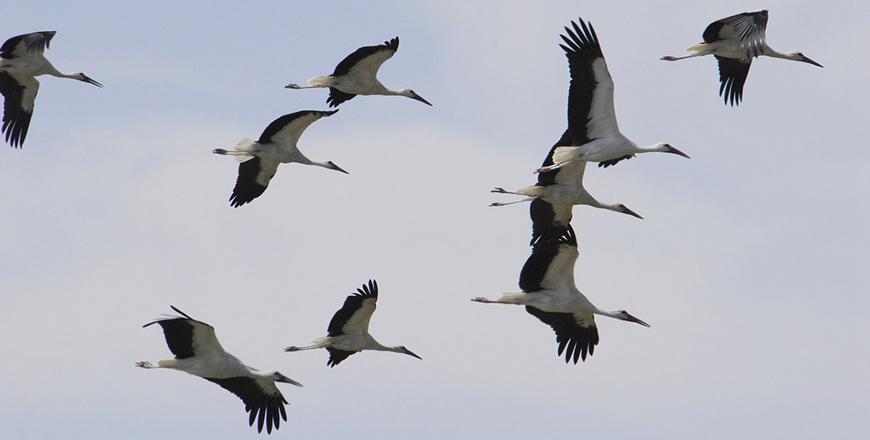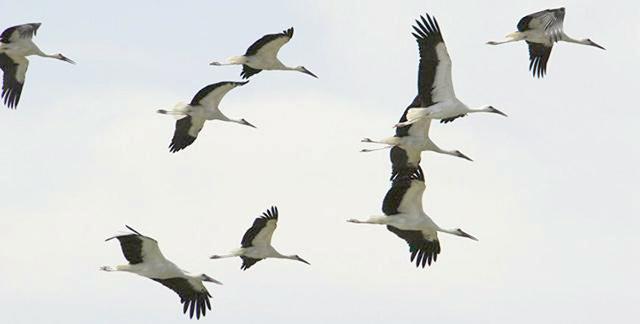You are here
RSCN workshop tackles adverse effects of veterinary drug diclofenac
By Maria Weldali - Aug 31,2022 - Last updated at Aug 31,2022

AMMAN — The adverse impact of veterinary use of diclofenac on vulture populations extends to the environmental and economic domains, said Tariq Qaneer, director of the Bird Project Department at the Royal Society for the Conservation of Nature (RSCN).
The RSCN on Wednesday held a national workshop on the toxic effects of diclofenac use on vultures which aimed to conceptualise measures that would halt the decline of the local vulture population, in cooperation with the relevant agencies.
“Vultures are a species that provide free ecosystem services that even benefit humans, whether directly or indirectly,” said Qaneer during the workshop. In Jordan, there are three vulture species: The Egyptian vulture (Neophron percnopterus), Gyps Fulvus and Aegypius Monachus, he added.
In his opening remarks, RSCN Director General Fadi Al Naser said that minimising or eliminating the use of veterinary diclofenac “would be a constructive step and a national accomplishment”.
Diclofenac is an anti-inflammatory drug and painkiller that has an adverse impact on migratory birds, some of which are already endangered, said Naser, noting that “Jordan being located on a main migration route has attached special importance to and has entailed dual responsibility on the country”.
He also referred to the RSCN’s strategies, initiatives and various efforts that focus on establishing compatibility between protecting the environment and economic growth.
Ibrahim Khader, regional director of Birdlife Middle East, highlighted that “this drug has a deadly impact on some vultures”, further pointing out that the numbers of endangered avian species has increased from almost 1,300 to over 1,400 species.
Identifying various scenarios in which vultures are exposed to toxic diclofenac residues, Qaneer said that vultures die due to renal failure (impairment of kidney function) within days after feeding on carcasses of animals that received a veterinary dose of diclofenac.
“Diclofenac is widely used in Jordan, and is available under various trade names such as Defloject, Diclovap, Oximic Plus, Parafen and Dad Diclovet,” said Qaneer.
According to official figures, 25 kilogrammes of diclofenac sodium raw material, which is enough to produce 10,000 bottles (100ml each), were imported to Jordan in 2017; 6,000 bottles (100ml each) were imported the following year.
Regionally, diclofenac use has been banned in Oman, and Saudi Arabia is working to withdraw diclofenac from its veterinary field, said Qaneer.
He pointed out that the RSCN, through the workshop, aims to take the initial steps to eliminate the use of this drug.
In this workshop, the RSCN met with environmental stakeholders and donors to provide their opinion on actions and discuss how less harmful alternatives, such as meloxicam and tolfenamic acid, could be introduced to the local market.
The workshop also focused on “comprehensive and fair” recommendations that would be presented to decision makers.
Related Articles
AMMAN — The Royal Society for the Conservation of Nature (RSCN) on Wednesday called on the ministries of agriculture and environment t
AMMAN — The Royal Society for the Conservation of Nature (RSCN) on Wednesday announced the beginning of the autumn bird migration season, no
AMMAN — The Royal Society for the Conservation of Nature (RSCN) celebrated World Migratory Day through ensuring the sustainable protection a


















